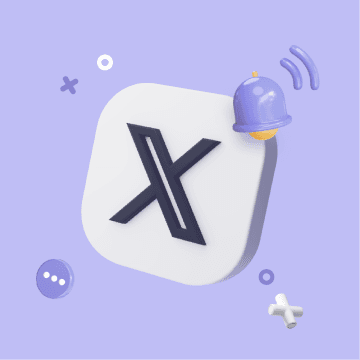Phoenix MCP
Provides a unified interface to Arize Phoenix's capabilities for managing prompts, exploring datasets, and running experiments across different LLM providers
Skills
Explore the skills and capabilities of this skillset.
Configuration
Customize the skillset to fit your needs.
MCP Server
Connect to MCP Server
PHOENIX_API_KEY
PHOENIX_BASE_URL
Phoenix MCP
AI Programmer
Transform your ideas into ready-to-publish HTML pages with AI Programmer by Bika.ai. Create stylish, professional web pages instantly — no coding required.
X/Twitter Manager
An AI-powered Twitter Assistant that helps content creators draft viral tweets with auto-polish, generate tweet ideas, and schedule posts using one-click automation. Grow your engagement and effortlessly boost your Twitter follower growth.
Github Issues Creator
Automate your GitHub workflow with AI. The GitHub Issues Creator generates ready-to-use GitHub issue templates, streamlines issue tracking, and ensures every bug, task, and feature request follows a consistent, professional format — perfect for product managers and agile teams.
AI Writer
Tell me about the AI product or brand — I’ll draft engaging marketing copy, articles, and social media posts tailored to your brand voice and product details, complete with relevant links and illustrations.
Brand Designer
An AI-powered Brand Marketing Assistant specially designed for start-up digital products, helping you quickly generate promotional content, visual concepts, and catchy slogans for social media and product launch campaigns. Save time while creating professional marketing assets to boost your brand impact on Product Hunt, AppSumo, and other platforms.
Email Marketer
Automate lead generation, outbound email automation, and 3-day follow-up email sequences with Bika.ai. Create automated follow-up emails, email automation flows, and email reminders efficiently. Boost sales, BD, and marketing campaigns with AI-powered email automation, streamline lead research, and manage automated email outreach effortlessly.
Stock News Reporter
Track U.S. stock news in real time and get structured reports with key insights, market reactions, and sector summaries. Make informed investment decisions fast.
Requirements Document Writer
Create professional requirements documents instantly with AI. Generate complete requirements templates, project requirements, and user requirements with detailed acceptance criteria and product specifications. Perfect for product managers and project teams.
Office Docs Helper
Create professional business, internal, and HR documents with AI. Instantly generate announcements, reports, and forms to boost office productivity.
Phoenix MCP

SWOT Analysis
Make informed decisions with the SWOT Analysis template — your complete tool for comprehensive situation analysis. Identify strengths, weaknesses, opportunities, and threats with an intuitive analysis workflow. Capture and organize data, classify positive and negative factors, and evaluate strategic choices using automated calculations. Perfect for project managers, business leaders, and decision-makers seeking a clear and actionable threats analysis and opportunities analysis across industries.

7-Day Automated Email Marketing
Quickly set up a 7-day automated email sequence to guide new users, onboard customers, and run product launch or welcome campaigns. Perfect for SaaS email marketing, automated follow-up emails, and continuous engagement to improve user activation, retention, and early product adoption.

AI Video Generation from Script
Transform scripts into professional videos effortlessly with the AI Video Generation from Script template. Featuring script automation, customizable workflows, and a streamlined video workflow, this tool is perfect for managing video projects and enhancing creative workflows. Store and organize resources in the script database and video database while catering to influencers, content creators, and marketers. Batch process projects for faster delivery and maintain high-quality outputs with Heygen integration, empowering you to scale content production with ease.

Design project pipeline
Streamline your creative projects with this Design Project Pipeline Template. Track task status, monitor project progress, assign jobs, and gain full project overview. Enhance team workflow in a collaborative workspace, maintain project organization, manage project updates, and ensure project visibility across all tasks for efficient and seamless project management.

Batch generation of HeyGen AI videos
Quickly generate high-quality HeyGen AI videos with batch generation and automated video workflow. Customize characters and voices, streamline video creation, and save time.
Contractor Time Tracker
Contractor Time Tracker streamlines work data management by connecting tables, simplifying task, personnel, and client tracking, improving project progress, billing management, and project cost tracking. Effortlessly monitor work items, track employee performance, automate reminders, and ensure timely service completion for enhanced efficiency and accuracy in managing projects.
AI Auto-Tweet with Image
Automate your X (Twitter) content with the AI Auto-Tweet with Image template. Use it as a Twitter post scheduler and Twitter automation tool that reads tweet content from your database, generates tweets with AI, uploads images, and auto-posts to X. Batch pre-write tweets, update their status to Publish, and let the workflow handle tweet scheduling, posting, and link tracking—perfect for social media managers, creators, and brands who want consistent Twitter activity without manual posting.

Travel Guide
Plan your journeys with the Travel Guide template — designed for efficient travel organization, complete pre-trip checklists, and streamlined hotel arrangements. Manage trip preparation with interconnected tables and flexible views, including kanban views for visual workflow tracking. Record travel companions, organize attraction details, build comprehensive itineraries, and visualize trip progress with real-time updates, making every travel experience smooth and stress-free.

Invoice collation reminders
Simplify finance workflows with automated invoice reminders, collection, tracking, and submission. This template streamlines expense reimbursement, enables quick photo uploads, provides a centralized invoice database, and ensures accurate, timely management for finance and administrative teams.
Phoenix MCP
Community Reporter
Community Reporter generates AI-powered community reports and activity reports, providing clear community insights, analytics, and highlights. Track interactions, monitor trends, and get actionable community analysis quickly and efficiently.

Fully Automated Twitter Scheduler
Automate your Twitter (X) account with Bika.ai's AI-powered template. Schedule tweets, post automatically, and save time while keeping your account active 24/7. Perfect for social media managers, businesses, and influencers.

YouTube to LinkedIn Sharing
Automatically share new YouTube videos to LinkedIn with seamless YouTube integration and cross-platform posting. This YouTube-to-LinkedIn sharing template works as a powerful LinkedIn posting tool that supports B2B video marketing, social media workflow automation, content repurposing tools, social media cross-posting, video marketing automation, LinkedIn content automation, LinkedIn content manager workflows, LinkedIn marketing tools, YouTube marketing tools, content scheduling tools, and more—helping you streamline your professional content distribution with ease.

HR Knowledge Base
The HR Knowledge Base template provides team members with a clear view of HR knowledge, processes, and data. Access detailed policies, procedures, employee orientation guides, and resource links easily. Track updates with HR dashboards, visualize insights, and ensure regulatory compliance while supporting efficient HR workflow, reporting, and continuous learning across your organization.

Slack Channel Scheduled Notifications
Automate your Slack reminders with the Slack Channel Scheduled Notifications template. Schedule team reminders, daily updates, and project notifications to boost collaboration and meeting attendance. Customize message content and formats, run automation tasks, set flexible trigger times, and deliver important information directly to your Slack channel without the burden of manual reminders.

Lightweight CRM
Manage your startup or small business relationships efficiently with this Lightweight CRM template. Track sales activities, monitor client tracking and company contacts, automate workflows with CRM workflow automation, and generate insightful CRM reporting. Perfect for startups, small businesses, and teams looking for a streamlined CRM workflow solution to improve organization, sales, and customer management.

Content Marketing for SEO
Use the Content Marketing for SEO template as a powerful content strategy template to streamline SEO content management and content workflow management from idea to publication. This content marketing automation setup helps you align content with SEO keywords, manage personas for persona based marketing, and track every step in a visual content marketing dashboard and content performance dashboard. Improve online visibility by organizing topics, workflows, and campaigns in one place so your team can plan, produce, and optimize SEO content more efficiently.

Automated Currency Data Retrieval (JavaScript)
The Automated Currency Data Retrieval (JavaScript) template runs daily jobs to fetch exchange rates and write them into a table, giving you clean, structured historical exchange rate data without manual copy‑paste. Use it for financial data automation that feeds dashboards, alerts, and automated financial reporting, so finance teams, forex traders, accountants, and analysts always have up‑to‑date FX data. Over time, the template becomes a lightweight risk management tool by helping you monitor currency movements, spot trends, and support better investment and hedging decisions.

Beginner's Playground
A template suitable for beginners to learn, containing examples of all resource types supported by Bika. You can learn and modify it to your desired effect.